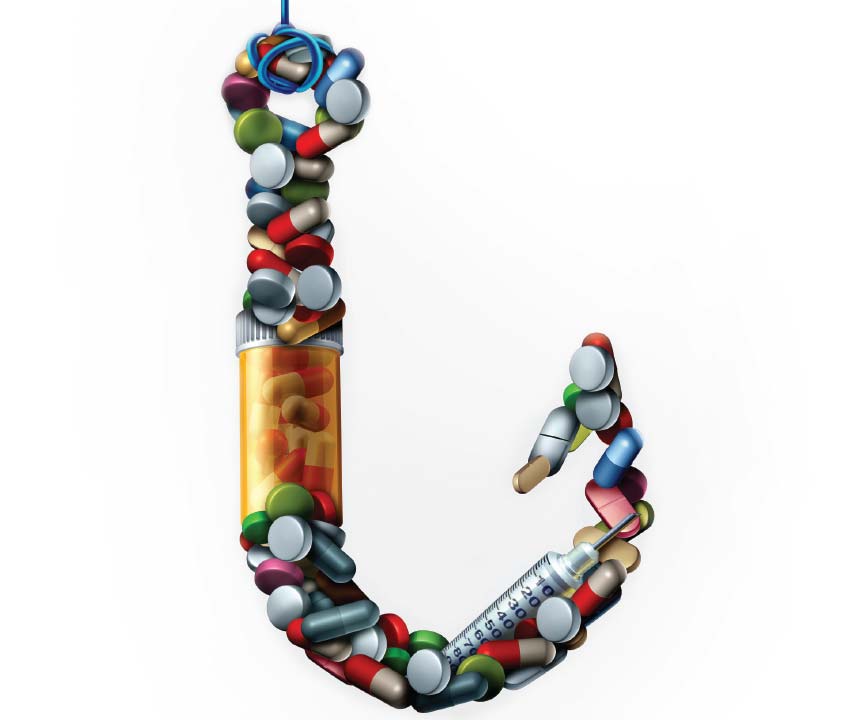Are Opioids (Narcotics) the Best Way to Manage Dental Pain?
Over-the-counter alternatives are just as effective, less risky
Dear Doctor,
For an upcoming wisdom teeth extraction, my dentist will be giving me over-the-counter pain relievers instead of prescription medication. Will this really work?
Dear Brenda,
When you need dental treatment or oral surgery, it’s understandable that you would want to have the most comfortable experience possible; that is what your dentist wants for you as well. However, research shows that over-the-counter pain medications in appropriate doses can be just as effective as prescription opioids in relieving pain after dental procedures. And in recent years, dentists have become more cautious about prescribing opioids.
 |
Each year, some 3 million people in the U.S. alone have one or more wisdom teeth extracted (removed) in dental offices. In the past, almost all of them received opioid-based prescription medications to control post-operative pain. In fact, in 2012 doctors and dentists wrote a total of 259 million prescriptions for opioids—enough for every adult in the United States to have a bottle! But today, those numbers are changing.
As you probably know, America is in the midst of an opioid addiction epidemic. Opioids are a class of drugs that include some derived from the opium poppy (such as opium, heroin and morphine) and others manufactured in the laboratory (like oxycodone, hydrocodone and fentanyl). Some, like heroin, are illegal “street drugs.” Others are prescribed by doctors and dentists—and too often, overprescribing leads to diversion and illicit use.
According to the U.S. Department of Health and Human Services, about 2 million Americans had a prescription opioid use disorder in 2015. Deaths from drug overdoses (largely due to opioids) are thought to have exceeded 59,000 in 2016. This represents the steepest annual jump yet recorded in the U.S., and makes overdoses the leading cause of death for Americans under 50. The number of overdose deaths is now greater than the peak fatalities from automobile accidents (54,589 in 1972) and from HIV-related diseases (51,877 in 1995).
It should go without saying that dental patients are extremely unlikely to overdose the first time they use prescription pain medication. But addiction statistics tell a grim story: About three quarters of opioid abusers and 8 out of 10 heroin users started off by taking prescription pain medication. According to several studies, patients who fill an opioid prescription have a much greater chance of eventually going on to illicit use of these substances. For people 10-19 years of age, dentists are the leading prescribers of opioids.
Our growing awareness of this problem has led to a push for safer alternatives for pain relief. That’s why, at my dental school (the University of Minnesota School of Dentistry), we have begun teaching dental students a new way to manage post-operative pain, and using it in our clinics. We now utilize a combination of non-steroidal anti-inflammatory drugs (NSAIDs) as the first-line pain treatment for all dental procedures: namely ibuprofen (Motrin® or Advil®) plus acetaminophen (Tylenol®). These over-the-counter (OTC) drugs are safer, inexpensive, readily available and, most importantly, equally effective—and they lack the addictive potential of opioids. If they aren’t successful at controlling pain, a decision can be made to prescribe opioids.
How well do they work? A 2013 study in the Journal of the American Dental Association (JADA) shows that the combination of the two NSAIDs works better than either one individually—and better than many currently available opioid medications! In my own clinical experience, I have not observed an increase in patient complaints with the NSAIDs as opposed to opioid medications.
Presently, the American Dental Association (ADA) recommends that dentists consider nonsteroidal anti-inflammatory analgesics as the first-line therapy for acute pain management. The ADA also says dentists should consider treatment options that minimize the risk of opioid misuse, and should coordinate pain management with other medical professionals. And there’s some good news on this front: According to the U.S. Centers for Disease Control, prescriptions for opioids (especially by dentists) have dropped recently, after years of increasing.
Still, some patients are wary of leaving the office without prescription medications for pain relief—and some dentists are reluctant to stop prescribing medications that have worked effectively for years. Part of the problem is simply the desire to avoid potential pain—and part is due to the expectation that a well-known prescription drug will work better than an OTC medication. This is where a little bit of discussion might go a long way.
If you have any questions or concerns about medications or non-prescription drugs, take the opportunity to ask your dentist or doctor about them. A simple conversation may begin a dialogue that could help you or a family member, either now or at some time in the future. As both medical professionals and patients become more aware of the potential problems associated with opioid misuse, we recognize that we all have a role to play in helping to solve this growing epidemic.



